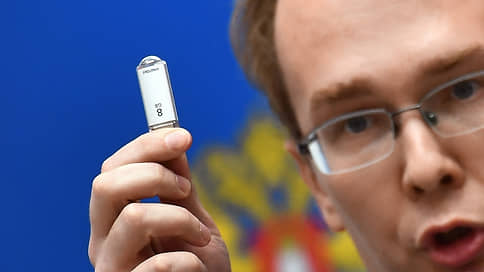Electronic voting fits into the standards
[ad_1]

On Friday, the Civic Chamber of the Russian Federation presented a draft unified standard for monitoring remote electronic voting (DEG), drawn up by analogy with the “gold standard” for monitoring at ordinary polling stations. It is a questionnaire of 66 items, by completing which, the observer will be able to verify the absence or presence of violations. The questionnaire is divided into thematic blocks – for example, about the procedure for separating and assembling encryption keys, about the voting process and the procedure for compiling the final protocol. Since the document contains a lot of technical language, the experts promise to prepare methodological recommendations for it with explanations “literally on every line” in order to equalize “technicians and humanitarians” in the possibilities of observation.
Draft unified standard for monitoring DEG, presented July 21 in the Public Chamber (OP), is a checklist with questions divided into several blocks.
By answering these questions, the observer will be able to understand whether there are any violations in the voting process.
The document included 66 “verification” questions, which must be answered “yes” or “no”.
But some items of the questionnaire will be available only to observers in the premises of the Territorial Election Commission (TEC) of the DEG or those who will observe online voting in the premises of the RF OP. Also, the items of the questionnaire are divided into thematic blocks: the procedures for dividing and assembling the encryption key, loading the initial data into the DEG system, the voting process itself, working with the list of online voting participants, compiling the final protocol.
So, observers will have to answer questions about whether the computer was checked before the key splitting procedure for the possibility of data leakage, whether the key was divided into the correct number of parts, whether parts of the key and the computer itself were removed for safe storage, on which the splitting procedure was carried out. In the block for monitoring the progress of the DEG, the observer will have to assess whether the voting started on time, check the absence of transactions for the issuance of ballots before the start of voting and after it, check the display of voting for each election on the observation portal, compare the number of ballots issued with those “lowered” into the online ballot box, and also make sure that observers have the opportunity to download the archive with all transactions. Observers who will follow the voting from the premises of the TEC DEG will also be able to assess the correctness of working with the voter list – its certification by the electronic signature of the chairman and secretary of the commission, the safe storage of an external medium with data on voters, etc. In the block on compiling the protocol with the results of the DEG, observers will have to control its formation and certification by the signatures of the commission members, verify the authenticity of their electronic signatures, and also track the publication of the protocol on the observation portal and on the Center website election commission.
The Association “Independent Public Monitoring” (NOM) will train observers for the DEG.
At the same time, according to Oleg Artamonov, an expert and deputy chairman of the TEC DEG in the previous elections, an “army of experts” is not needed to monitor online voting, and several dozen well-trained observers are quite enough. According to him, in the elections in 2022, 110 people watched the course of the DEG in seven regions, and this turned out to be “more than enough.”
Mr. Artamonov also said that a single standard for monitoring the DEG was prepared on the principle of a checklist for aircraft pilots, which they use to check the readiness of the vessel for flight. “The aircraft is an extremely complex device, and it is difficult for the pilot to remember and keep in mind all the points that he needs to complete to prepare for the flight,” the expert explained. “And then checklists were created in aviation. It’s a list that says what the pilot should check.”
In the formation of the questionnaire, according to Oleg Artamonov, experts in the DEG systems, including observers at elections of previous years, took part.
In addition, since the document contains a lot of technical language, the experts will prepare methodological recommendations, in which “literally for every line” of the standard there will be explanatory comments, Mr. Artamonov promised. “I hope that the election observation standard and its guidelines will blur the lines between the humanities and the techies,” he concluded.
Alena Bulgakova, Chairman of the Public Control Commission of the Russian Federation on Public Control and Work with Citizens’ Appeals, Executive Director of the NOM, said that the submitted draft standard for monitoring the DEG will still be finalized taking into account the proposals and wishes from the regions where such a voting format is planned this year (25 regions, including Moscow, will use the DEG in the fall of 2023). After that, a single standard will be approved in the RF OP. According to Ms. Bulgakova, in the future, a road map for monitoring the DEG will be adopted, which provides for the training of observers and the preparation of methodological recommendations.
[ad_2]
Source link








